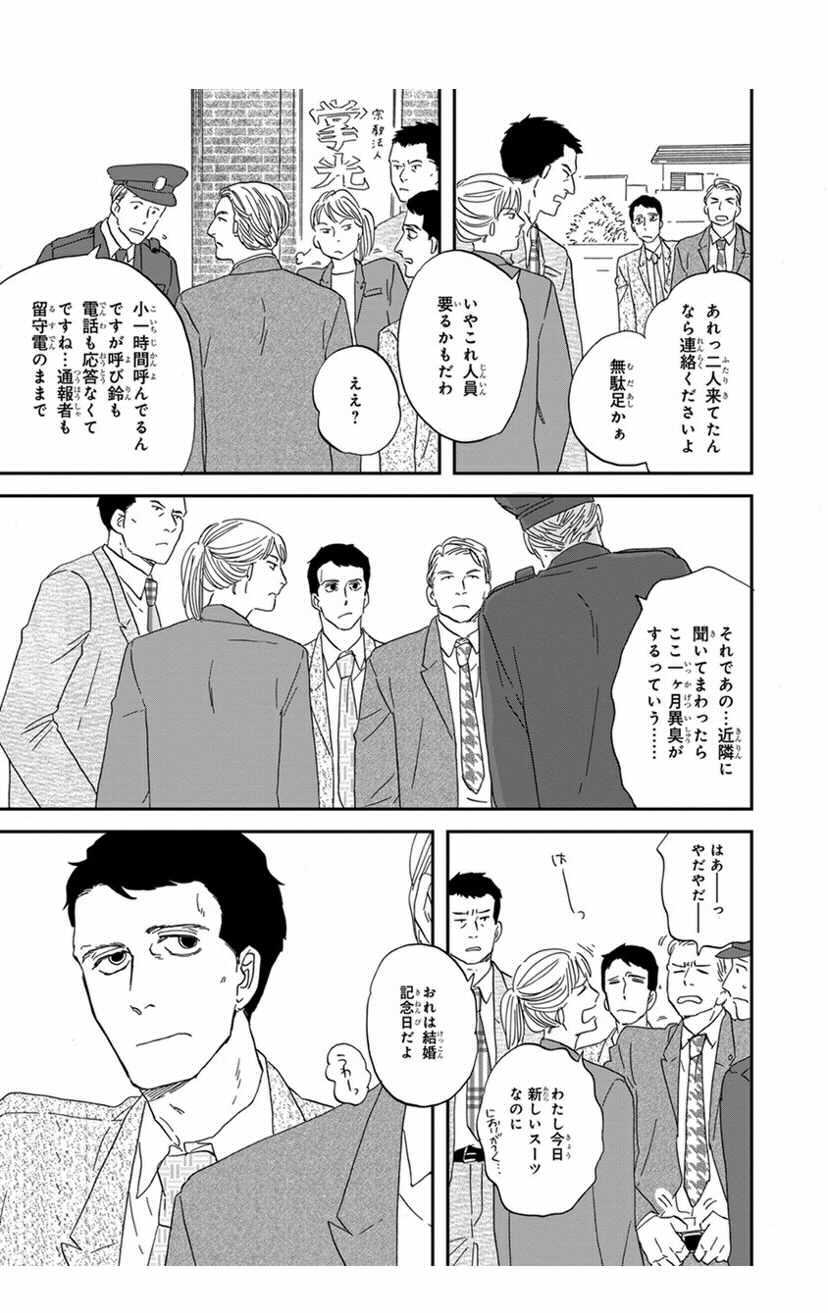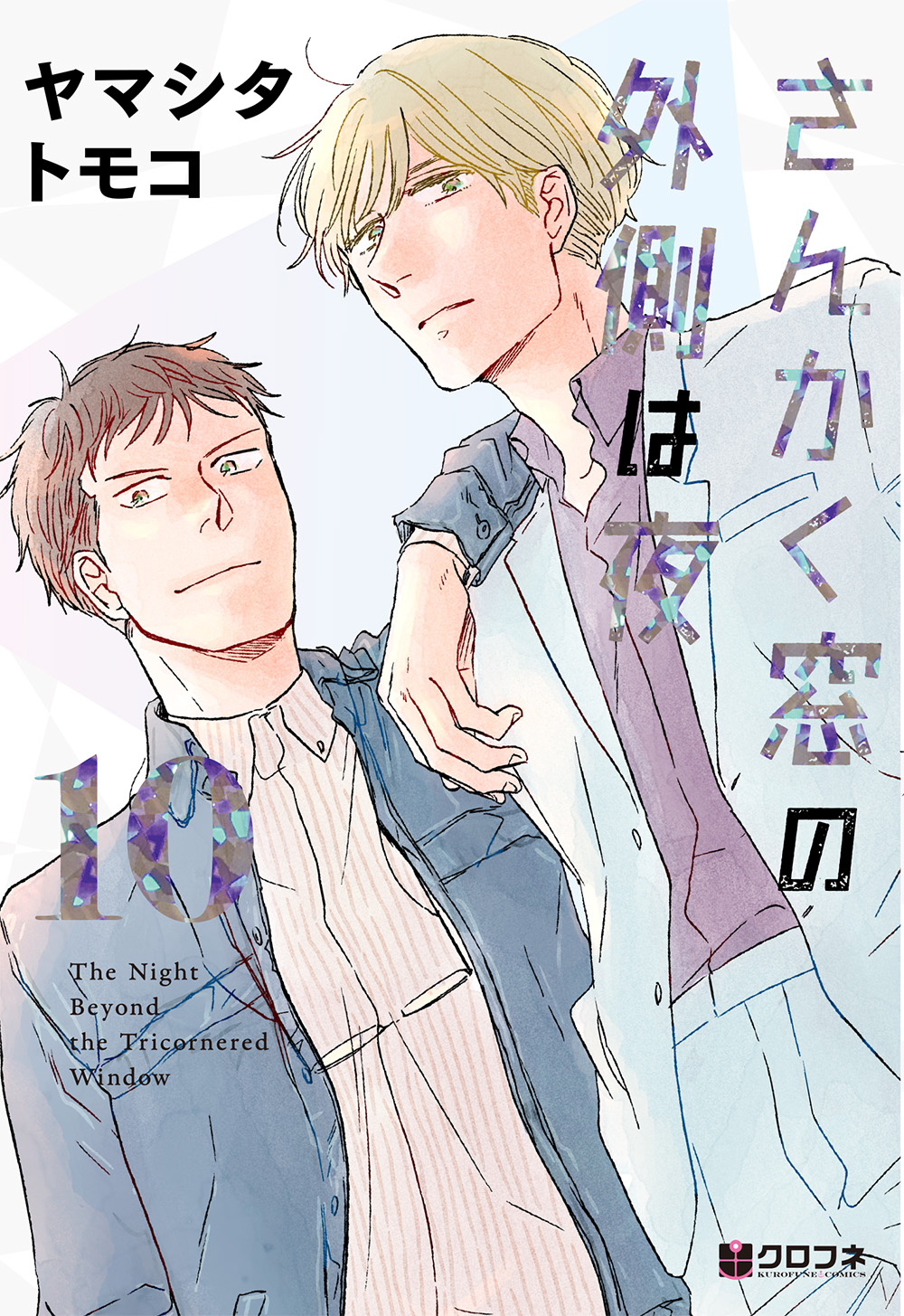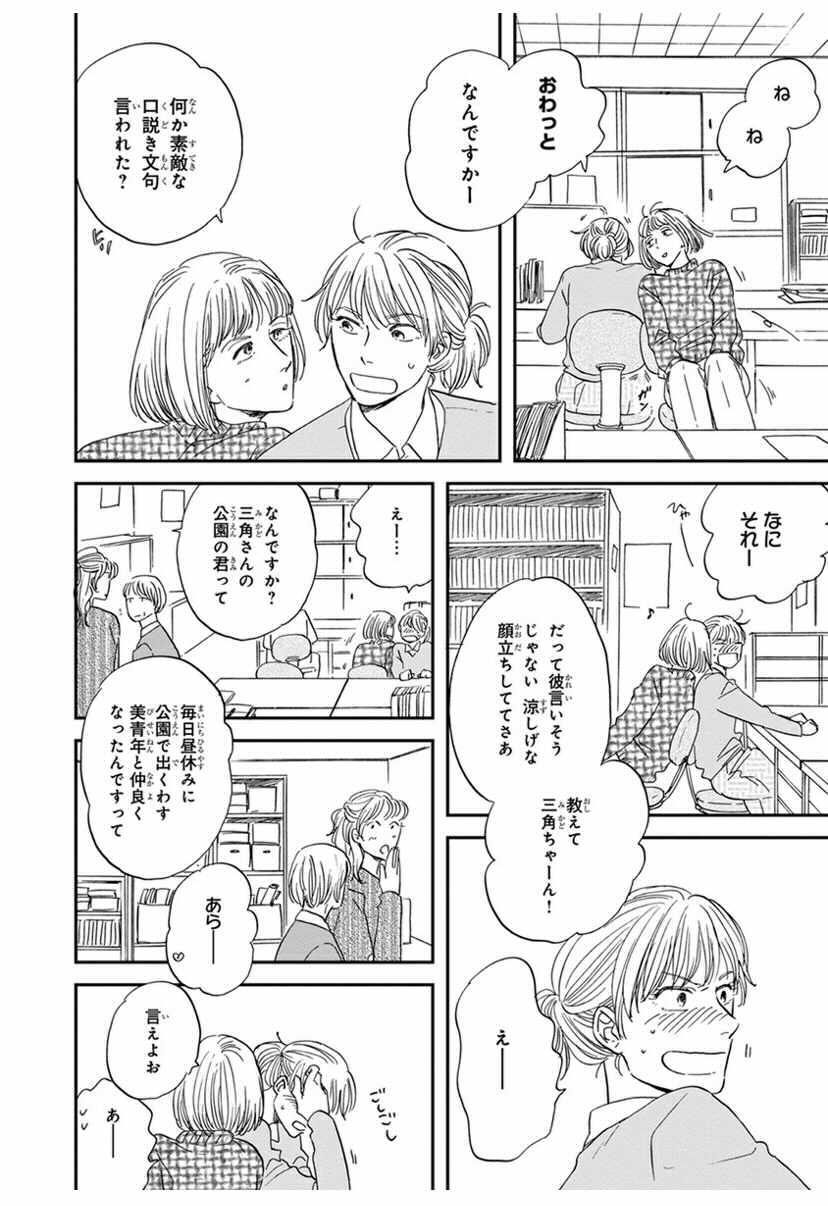The Reasons Behind Tomoko Yamashita's Update - Sending out a message can be scary.
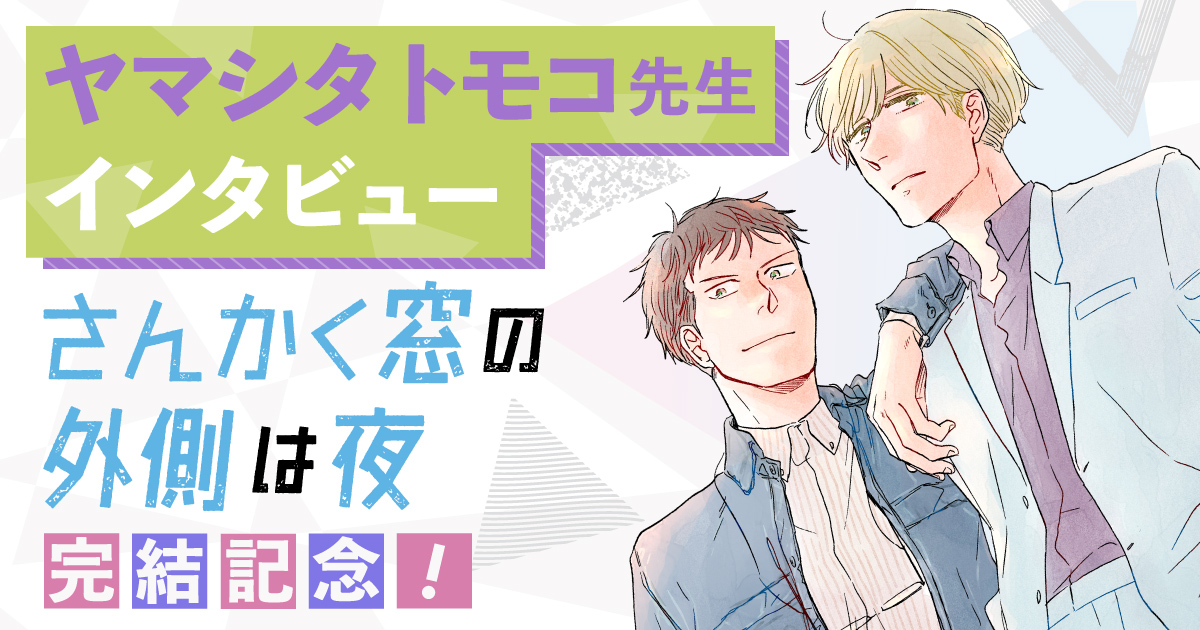
>> Read The Night Beyond the Tricornered Window (Japanese only) <<
Always think: does it have to be like that?
── I get the impression that you have certain answers in mind that you always stick to, and that let you create your works with no hesitation whatsoever.
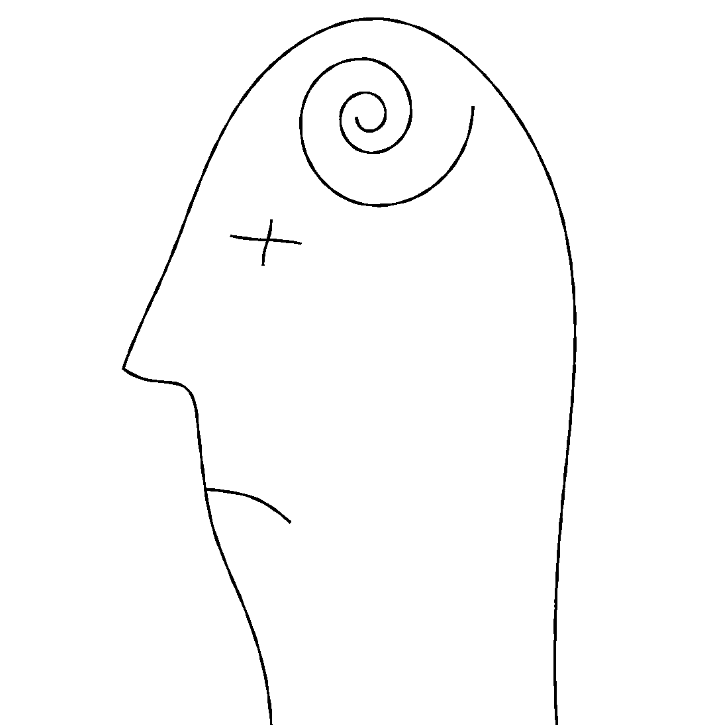
── How did you come to realize the importance of political correctness in your works?

── Some people may just brush certain things off by saying that "people outside Japan have it rough." Instead, you took it in stride and welcomed a different point of view with open arms.

── You mentioned feeling uneasy about certain things in fiction. Can you give us some examples?

── I've heard that you try to show diversity even in the most trivial aspects. For example, instead of having only male police officers, you make sure that in your stories there are female officers too. Is there anything else that you pay particular attention to?

I believe that we can do our part to change the world by not reproducing the same inequalities we find in real life in fiction. But that aside, I'm actually not focusing on anything in particular. I only try to think about every scene and every secondary character in detail. I always ask myself: do I really need to use a certain kind of setting? Aren't I somehow biased? So I don't feel like there is something in particular that I pay special attention to.
── So you're saying that you're not doing anything exceptional.

Sending out a message can be scary.
── Still, being aware of unconscious bias isn't easy. Have you ever done something regretful?

── What do you do when you make a mistake? When I was just starting out as a writer, a person I was interviewing kept mentioning one of their parents, but I thought I'd change it to "parents" in the transcript. However, when I showed them the final draft, they pointed out that they grew up with a single mother... Back then, I felt so sorry about my lack of understanding.

── In the past, you caused quite a stir when you announced on Twitter that you had stopped calling BL works "homo." Was your declaration posted in the spirit of "sharing your mistakes"?

However, I ended up deleting that Tweet and the discussion it generated, because some people interpreted my words in a way that I had not intended. After all, dealing with a single person via DM and dealing with a large group of social media users are two very different experiences. I still haven't come to a conclusion on how I should have dealt with it back then...
── It takes courage to look back on your past mistakes and to share them publicly.

── Is there anything else that you used to portray in your works and that you don't do anymore?

── Is there anything that you pay attention to in your everyday life so that you don't end up hurting someone without realizing it?

"Politically correct" doesn't mean boring
── Some people think that political correctness is boring. What do you say to that?

── In Japan we have something similar to trigger warnings, but I have the feeling that they're mostly used for personal preferences. Like, "if you don't like this kind of theme, get out of here!"

As an artist, I feel that readers do not distinguish between reality and fiction as much as writers. If this is the case, then I think artists should be very aware of ethics when creating their works.
── How do you keep your conscience up to date?

── What kind of content do you feel has broadened your horizons?

I wanted heterosexuality to be a part of my BL stories.
── The Night Beyond the Tricornered Window is one of your most entertaining works.

── With a total of ten volumes, this is your longest work so far.

── Pardon the uncouth question, but is it right to say Hiyakawa is the top and Mikado is the bottom?

Yes, that's correct. Even if there are some people out there who have been enjoying it from a reverse pairing perspective, that's just their way of reading into it. I really enjoy fixed pairings, so I was pretty surprised to hear that someone interpreted it like that. (laughs) Actually, in the early stages of the story, I had a plan to make Erika and Mukae more like a tease to lure them to temptation, but I imagined how sad it would be if my favorite characters ended up having such an unhappy role, so in the end, I settled on them being good old disturbers of the peace.
(Translator's note: Reverse pairings are defined as the top/bottom of a pairing in same-sex ships being “reversed” when compared to what the shipper likes or to what the author has established. Fandom folks in Japan can get very attached to their top/bottom preference for a specific ship.)
── You said you wrote a big part of Tricornered Window on a spur-of-the-moment basis. What other changes did you make along the way?


── Your debut work, Dining Bar Akira also places special attention to characters around the couples.

── Judging from what you say, it sounds like you have a history with ensemble dramas that put emphasis on boys' love, even before the serialization of Tricornered Window.

── Mikado seems to be the type of person who would go to work no matter what Hiyakawa says.

── Thank you very much for your time today. I got the impression that you draw manga with a mission. But of course, while you put emphasis on ethics, entertainment is what comes first for you, and everything else is just for the sake of entertainment.


